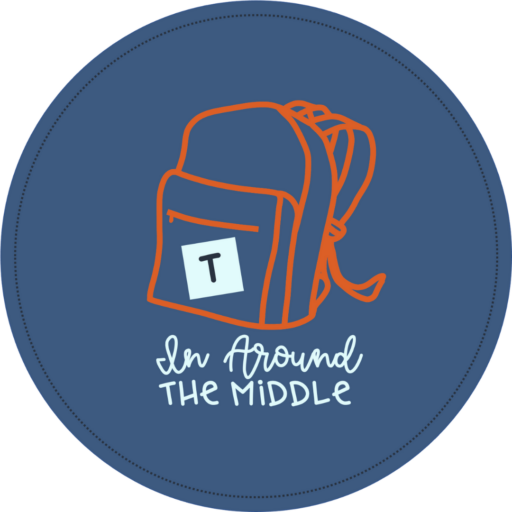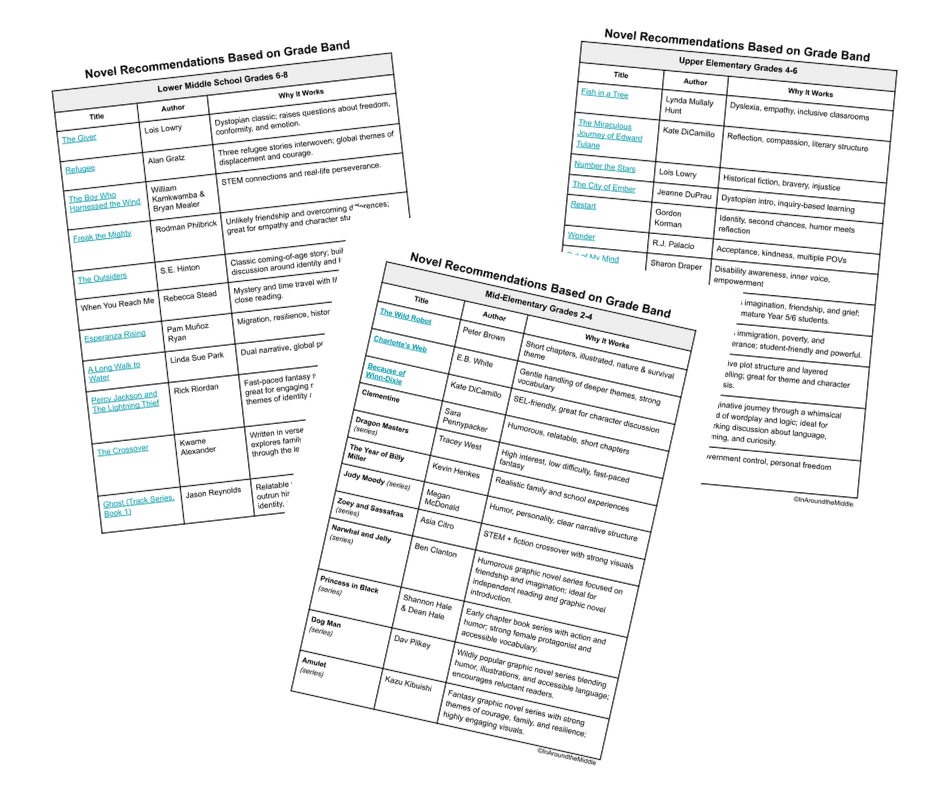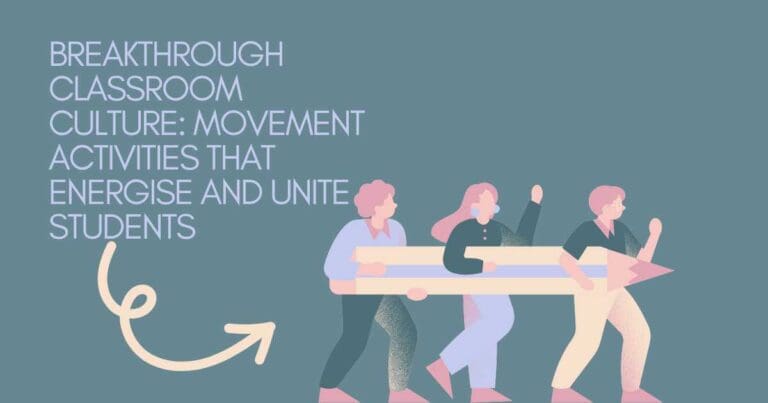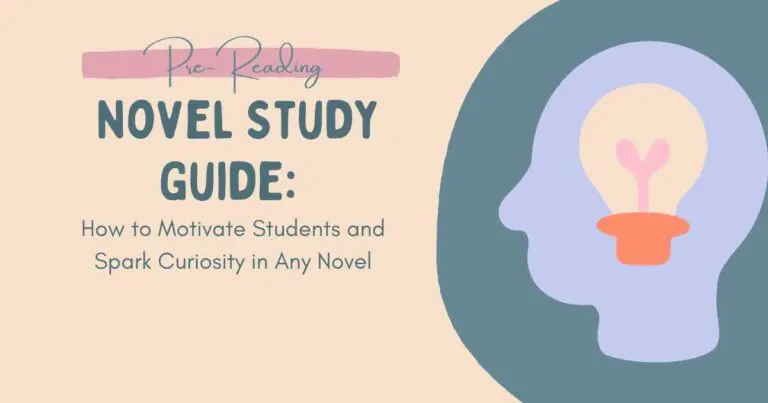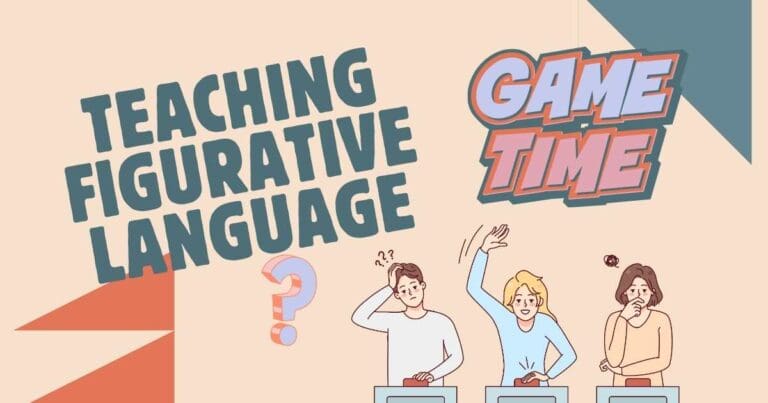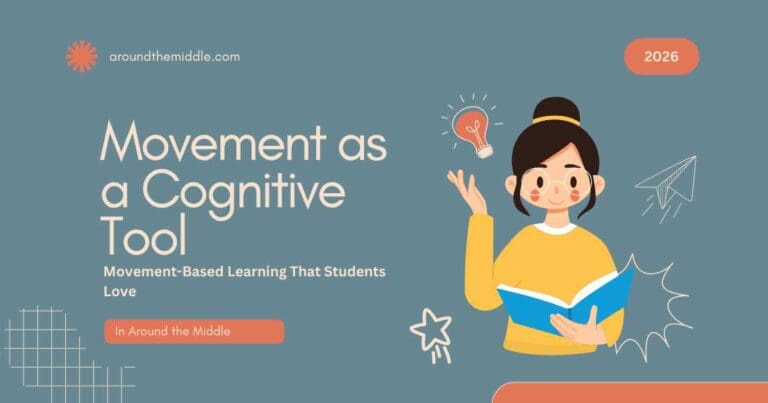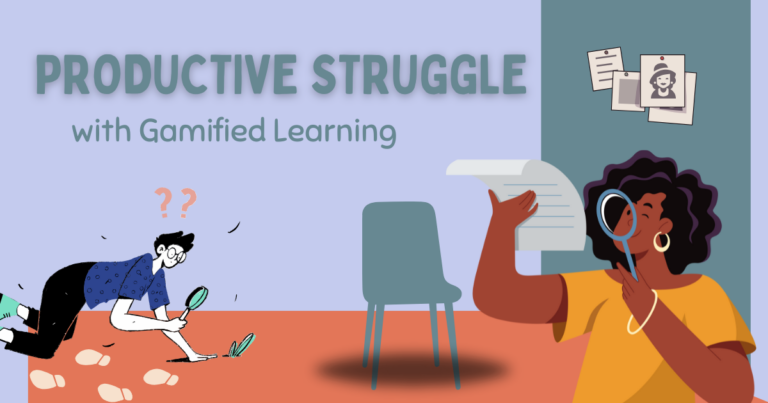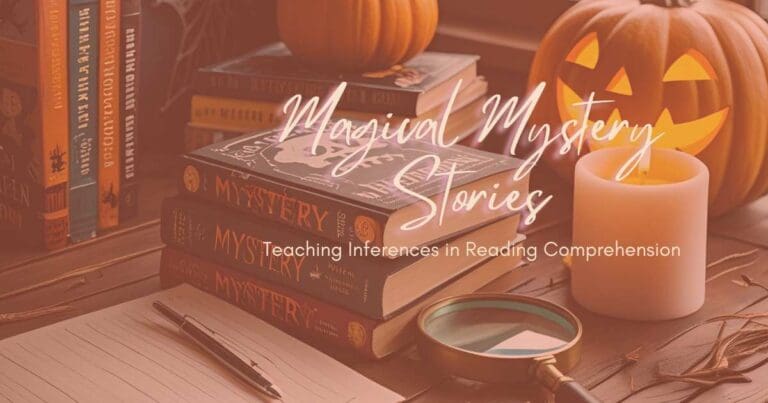The Ultimate List of Back to School Books to Inspire Grades 4–6 Readers
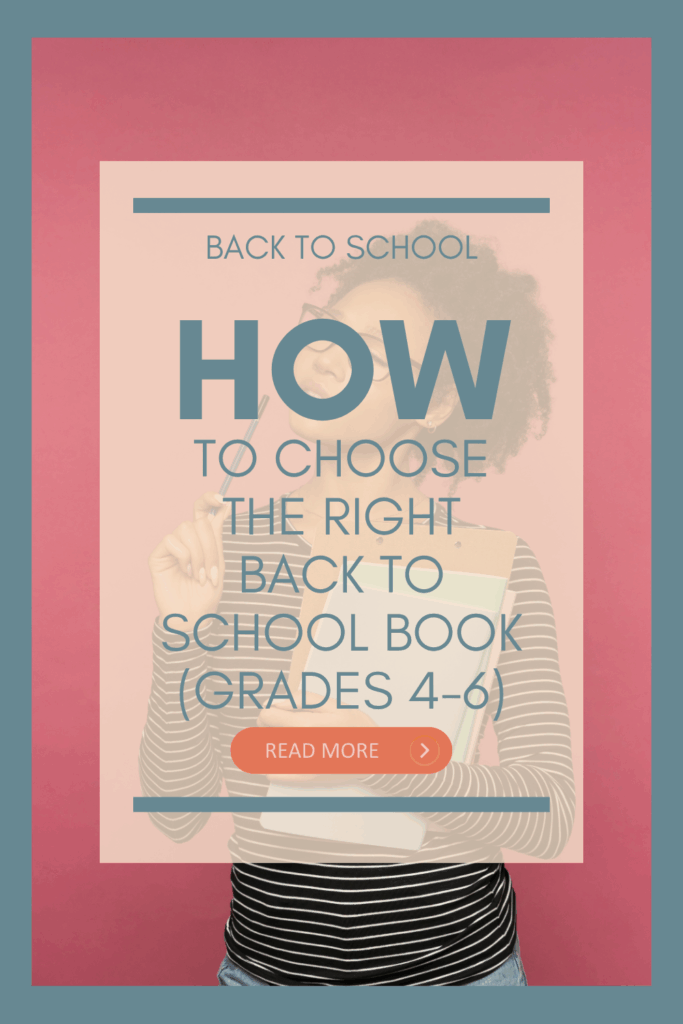
Choosing back to school books for Grades 4–6 means moving beyond surface-level stories. Upper elementary learners are ready to wrestle with deeper themes, engage in complex discussions, and explore literature that reflects both themselves and the wider world. Here’s how to make confident, curriculum-aligned choices for the start of the school year.
At this stage, students are transitioning from learning to read to reading to learn. Intellectually, they’re capable of abstract thought, recognizing bias, and connecting ideas across texts. Developmentally, they are forming stronger personal identities and beginning to understand others’ perspectives. Socially, peer relationships and a sense of belonging take on greater importance. Choosing the right back to school books means selecting stories that stretch their thinking, validate their experiences, and create opportunities for shared reflection and community-building.
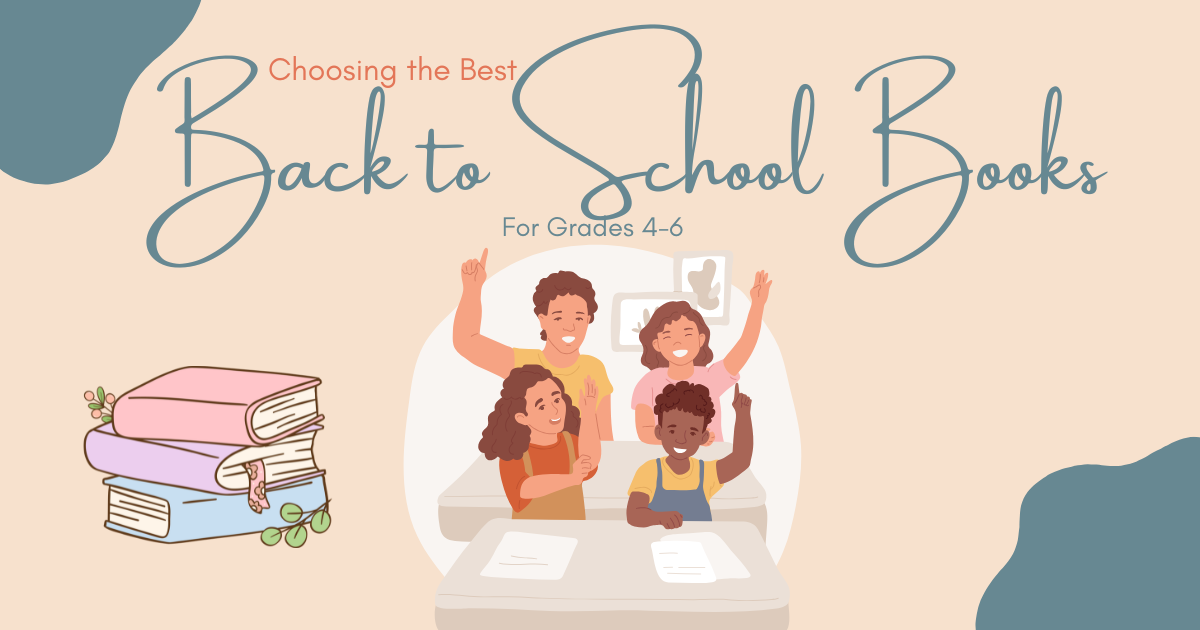
Big Ideas for Growing Minds: Novels That Spark Deep Thinking
The best back to school books invite students to think critically, question assumptions, and track growth across a character arc. Look for books that contain subtle themes, internal conflict, or big questions without obvious answers. These stories should challenge students to make inferences, explore cause and effect, and consider how characters evolve over time.
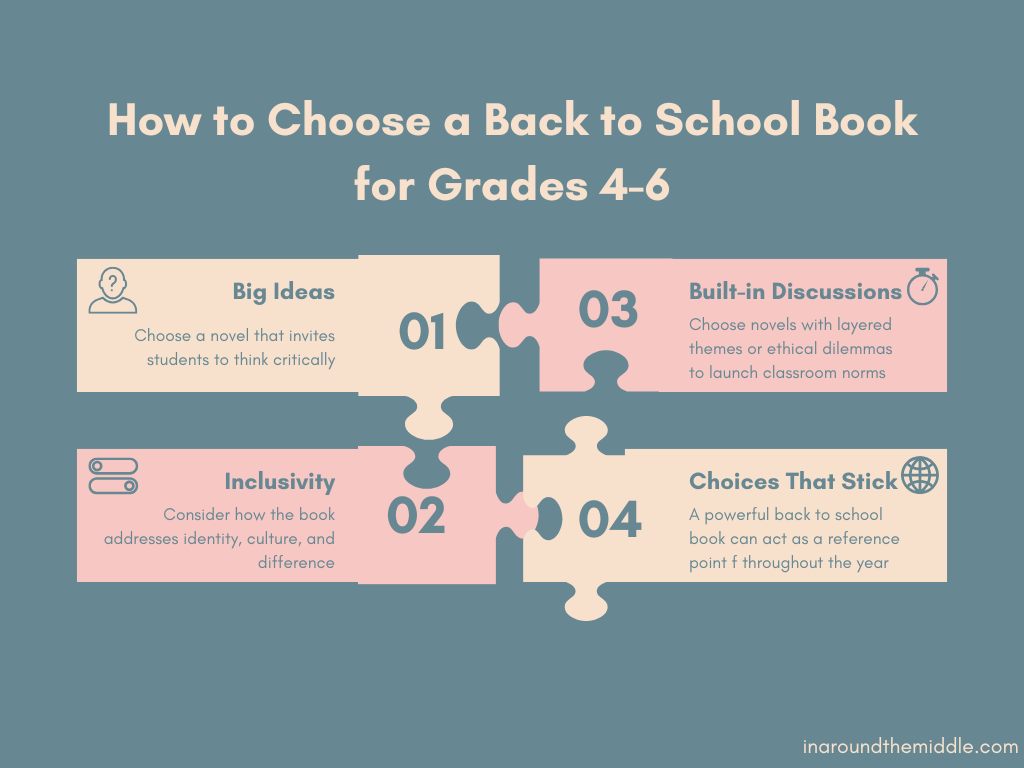
- Because of Mr. Terupt – Explore multiple perspectives and character change. Ideal for teaching empathy and point of view.
- Wonder – Discuss kindness, judgment, and moral choices. Use this to introduce theme tracking and reflective journaling.
- The Wild Robot – Examine the intersection of technology, nature, and identity. Great for comparing character vs. setting conflict.
Choose books that allow your students to return to the text with new thinking, whether it’s through character studies, thematic mapping, or deep discussions.
Windows and Mirrors: Diverse Back to School Books for Inclusive Classrooms
Representation matters. Early in the year, books that offer both “windows” into other experiences and “mirrors” of students’ own lives help build community, empathy, and trust. Prioritize authors from a range of backgrounds and stories that move beyond stereotypes.
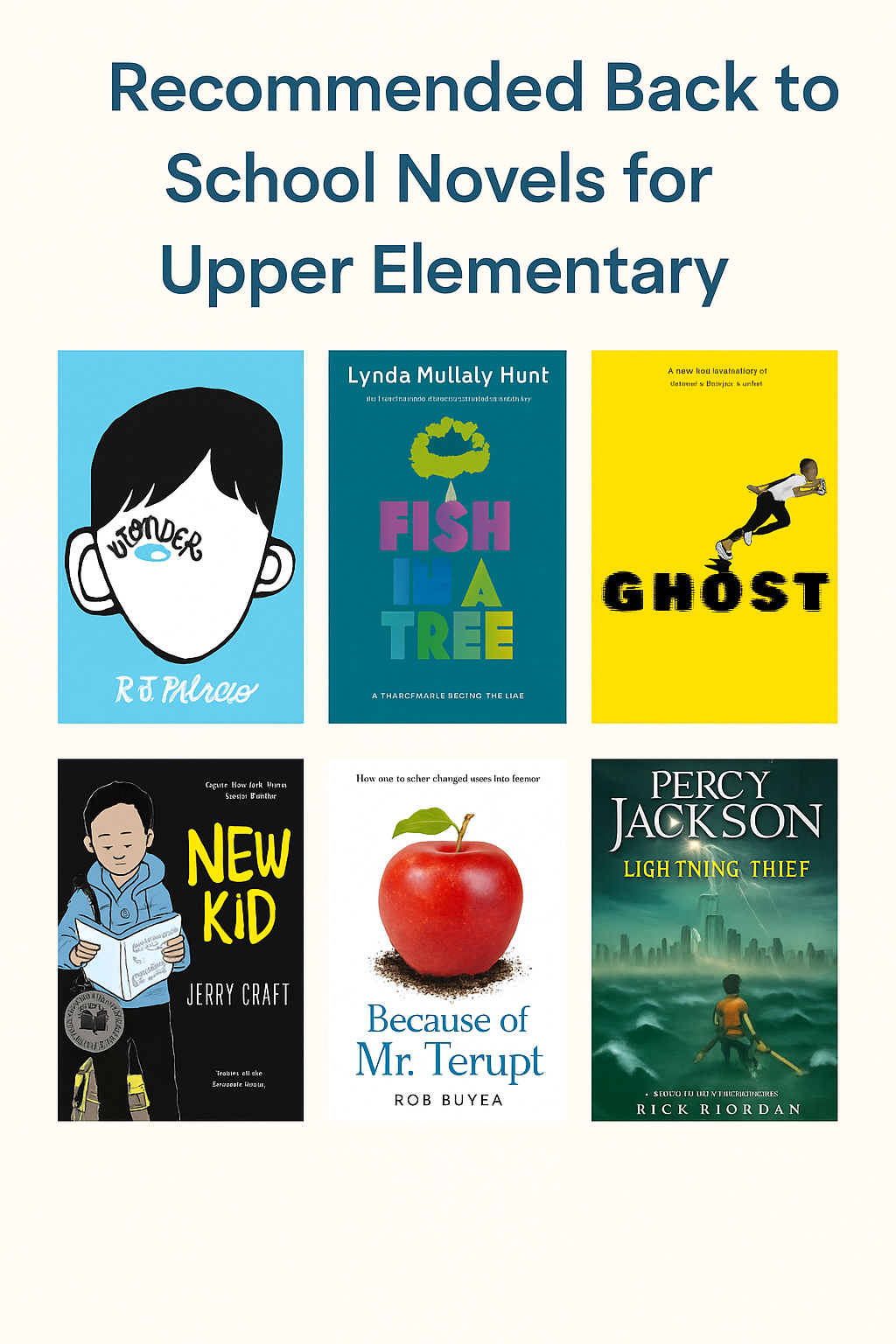
When choosing diverse back to school books, consider how the book addresses identity, culture, and difference. Is the representation authentic and multidimensional? Can students find meaningful connections or gain valuable insight into lives different from their own?
- Fish in a Tree – A powerful look at learning differences and hidden strengths. Use it to encourage vulnerability and strength-based thinking.
- Ghost – A fast-paced read that tackles poverty, family, and self-worth. Anchor for conversations about determination and resilience.
- New Kid – A graphic novel that explores race, privilege, and fitting in. Excellent for visual learners and tackling bias head-on.
Back to school is the right time to affirm that every student belongs in your classroom—and that their stories are worth telling!
Books with Built-in Discussions: Get More from One Read
Back to school books that naturally prompt conversations make life easier—for you and your students. Choose novels with layered themes or ethical dilemmas to launch classroom norms around respectful dialogue and reflective thinking.
When selecting these texts, ask: Does this story raise questions with no clear answers? Are there moments that beg for student interpretation or debate? Will it support speaking and listening standards?
- Restart – Memory loss and second chances spark “Who am I?” debates. Students explore redemption and character transformation.
- Tuck Everlasting – Questions of immortality and the value of life. Rich source for Socratic seminars or quick writes.
- Percy Jackson and the Lightning Thief – Loyalty, identity, and destiny are all up for debate. Promotes text-to-self and text-to-world connections.
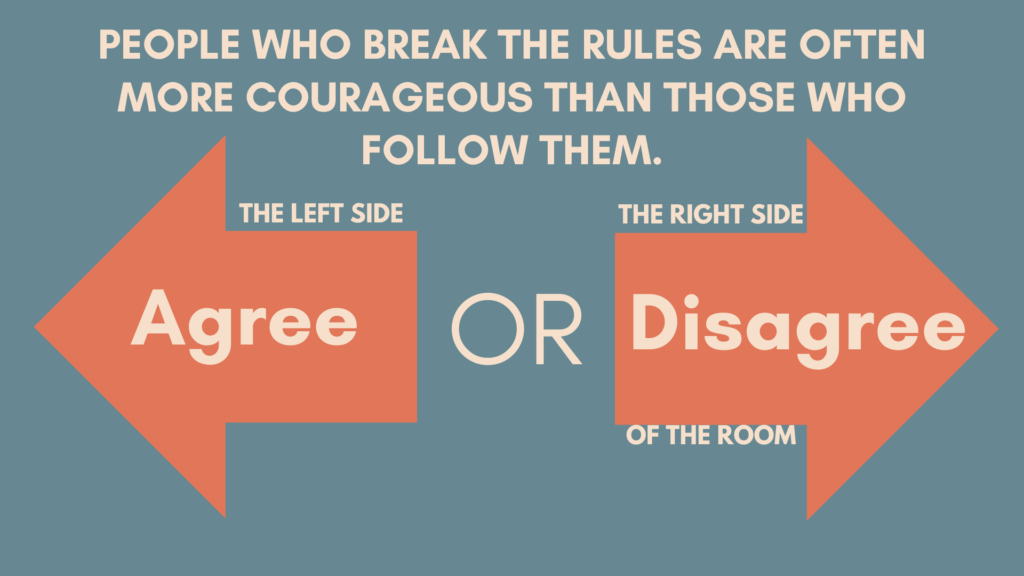
Pair these novels with discussion routines like “Think-Pair-Share,” “Four Corners,” or reflective journals.
Making Text Choices That Stick Beyond the First Term
The best back to school books don’t end when the final chapter closes. They’re rich enough to return to all year long. Consider these guiding questions when choosing an anchor text:
- Does this book align with my anchor standards in reading and writing?
- Can it be differentiated easily for a range of abilities?
- Are there natural links to writing prompts, research projects, or inquiry tasks?
Think long-term. A powerful back to school book can act as a reference point for literary devices, structure, character development, and theme analysis throughout the year. It’s also an opportunity to build stamina, model annotation, and introduce habits of strong readers.
My Go-To Back to School Books for Upper Elementary
Here are a few tried-and-true titles I return to again and again:
| Title | Themes | Why It Works |
|---|---|---|
| Wonder | Empathy, identity | Builds classroom culture and reflection |
| Because of Mr. Terupt | Perspective, responsibility | Multi-narrator format is highly engaging |
| Fish in a Tree | Learning differences, belonging | Encourages discussion on hidden struggles |
| Ghost | Overcoming challenges, family | Fast-paced and accessible for reluctant readers |
| New Kid | Race, friendship, belonging | Graphic novel format appeals broadly |
| Percy Jackson and the Lightning Thief | Mythology, destiny, identity | High interest, strong character arc |
Final Thoughts:
Back to school books are more than just an icebreaker. They help you launch the kind of classroom you want to build: inclusive, thoughtful, and rooted in meaningful learning. Choose a text that will give you mileage—something that opens doors to critical thinking, community building, and curriculum alignment.
Looking for even more recommendations? Grab the free list of best classroom novels by grade band.
Stay tuned for Part 3 of this series, where we explore novel choices for upper elementary students—the age when themes deepen and text complexity takes centre stage.
Be sure to check out my TPT store for engaging movement-based novel activities perfect for grades 4-6! Teaching a different grade band? Part 1 of this series covers Grades 2–4 with developmentally appropriate strategies and book picks to help you start the year strong.
Happy teaching
